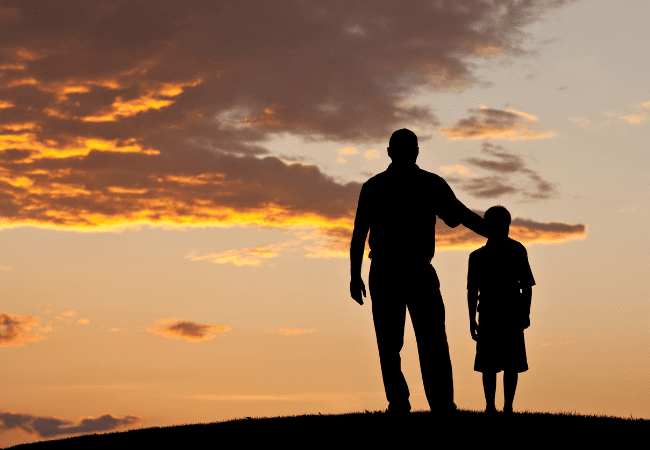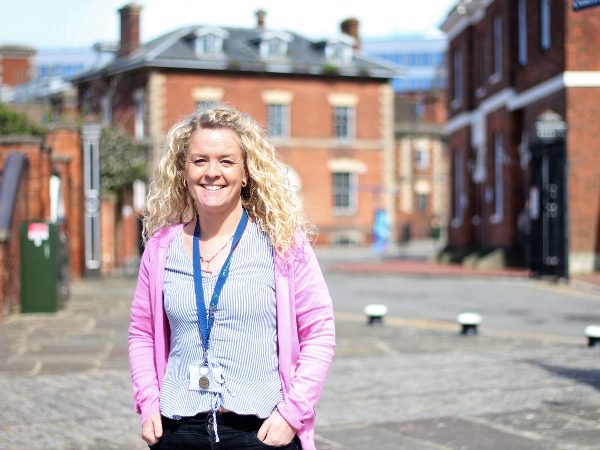
On Tuesday 9th June Young Gloucestershire hosted a Live conversation on Facebook. This piece follows on from the discussion we had about race and equality.
15 June 2020
Black Lives Matter – continuing our conversation.
On Tuesday 9th June Young Gloucestershire hosted a Live conversation on Facebook – if you missed our chat you will be able to find it on our Facebook page to watch again. This piece follows on from the discussion we had to reference some of the facts and figures and research that was brought up during the conversation about race and equality.
Following George Floyd’s murder by a Police officer in Minneapolis on the 25th May 2020, the world has been up in arms and the Black Lives Matter movement has gained immeasurable traction on social media. The movement has now been seen, heard and discussed by a huge number of people around the globe, bringing to people’s attention new perspectives and new terminology that challenges our understanding of racism and equality.
For some this has been a welcome awakening, for many it is something they have lived with their entire lives and for others it has been the beginning of a difficult and challenging conversation. But although starting a conversation about racism can be difficult and holding the conversation can be uncomfortable. That’s okay. People will make mistakes and get things wrong. That’s okay. But what we all need to do is have an open mind, listen to one another and be willing to learn. All of us have learning to do. Every single one of us.
One concept that has been largely discussed in the media lately – and in our Facebook Live conversation is that of White Privilege – but what exactly is it?
White privilege does not mean that white people can’t experience hardship, we can all experience hardship, poverty and injustice. Nor does it mean that white people as individuals may necessarily carry out racist actions. However what it does mean is that a white person’s life is not made more difficult because of the colour of their skin.
- It means that people in black and ethnic minority groups face twice the risk of dying from COVID-19 (highlighted by the Government’s report on COVID risks¹).
- It means that black females are five times more likely to die during childbirth than white females².
- It means that a black female doctor on average makes £1 when a white male doctor makes £1.38³ (NHS Pay Gap Report 2019).
- It also means that white people don’t have to think about which shops will sell their colour foundation, or hair products suitable for their hair, or kid’s toys with the same colour skin as their child, or look for ‘skin-coloured’ tights that only come in beige.
It means white people are not consistently reminded that they are different.
Another term that has come under scrutiny is that of the movements own name – ‘Black Lives Matter’ as opposed to ‘All Lives Matter.’ But is it just a question of semantics (the meaning of words and twisting the perspective) or a genuine need to highlight the plight of one group over another. Lots of people have lots of valid opinions about this and you will have to make up your own mind, but this little cartoon certainly helps to demonstrate how the phrase is aimed at highlighting a problem rather than undermining equality.
So what can we do about it?
Change takes time. When there is a systemic issue, there needs to be systemic change.
But what does systemic mean?
It means that the systems in our society are inherently biased towards white people, whether that is consciously or not. For example, in 2018-19, black people were nine times more likely to be stopped and searched by Police than white people⁴. That’s not in America, that’s here, in the UK. But it’s not enough to stop there, we need to unpick all the complex and interwoven reasons behind why – housing, education, the job market, immigration and all the many laws, rules or unconscious biases that may put a white person at an advantage in this world over a black person or systems that do not work towards breaking the cycle of history that continues to perpetuate inequality.
The Black Lives Matter movement recognises that not everyone is actively racist. It does not support generalised statements about the Police, the NHS, or groups of people. It acknowledges that there is good and bad in all walks of life. What the movement is saying however, is that it is not enough for people to simply not be racist. We need to actively challenge the systems that uphold racism. We need to be anti-racist.
Here are some ways you might help to actively challenge racism:
- Educate yourself about black history – read or watch information about black history and the history of the UK. Netflix has some good documentaries you can watch. A highly acclaimed documentary called 13th has been made free to all, so you don’t even need an account to watch it. Scholars, activists and politicians analyse the criminalisation of African Americans and the U.S. prison boom.
- Have open and honest discussions with friends and family, explore your opinions, respect your differences but challenge one another to be better.
- Explore the information that is filling people’s social media feeds currently. Most of this content is individual’s opinions so remember to check facts and sources and be careful not to get pulled into unhelpful debates or fall victim to trolling. Listen to podcasts and interviews on the radio from more reliable sources or those that provide first hand experiences.
- Support brands and businesses that are inclusive and diverse – in the wake of the Black Lives Matter movement many companies have been making public pledges about how they can do more to actively challenge racism.
- As you read/listen and research you will start to understand more about the specific challenges in your own community. You may choose to write to your MP demanding change (there are templates online to help you) or sign petitions that support the flight for equality – there are lots online and as you research you will begin to come across them.
- You could donate to charities that champion diversity (or if you can’t, there are YouTube videos which are donating their advertising money to various foundations and charities, so just play these on repeat).
The Black Lives Matter exposure on social media has helped to kick start a mass of support for the movement and opened many challenging debates and conversations. Do we shy away from the uncomfortableness, or do we hold our hands up, acknowledge the gaps we have and the progress we need to make?
Here at YG we are open to learning more, to doing more and we are happy to continue this conversation with you.
Remember: It’s not a moment, it’s a movement.
Here are some of the sources of information we have referenced throughout this piece and during our Facebook Live conversation from the 9th June 2020 – it makes for some interesting reading so please take the time to explore them.
- https://assets.publishing.service.gov.uk/government/uploads/system/uploads/attachment_data/file/891116/disparities_review.pdf
- https://www.npeu.ox.ac.uk/downloads/files/mbrrace-uk/reports/MBRRACE-UK%20Maternal%20Report%202019%20-%20Lay%20Summary%20v1.0.pdf
- https://digital.nhs.uk/data-and-information/publications/statistical/nhs-workforce-statistics/nhs-workforce-statistics—march-2019-provisional-statistics
- https://www.bbc.co.uk/news/newsbeat-52892949 / https://www.ethnicity-facts-figures.service.gov.uk/crime-justice-and-the-law/policing/stop-and-search/latest#by-ethnicity
You may also like...
Redesigning Graphic House: Creating the safe spaces young people deserve

Meet Jamie – Learning, growing, and giving back through Youth Work

From Probable Mental Illness to Wellness

Young Gloucestershire’s ED and I journey

